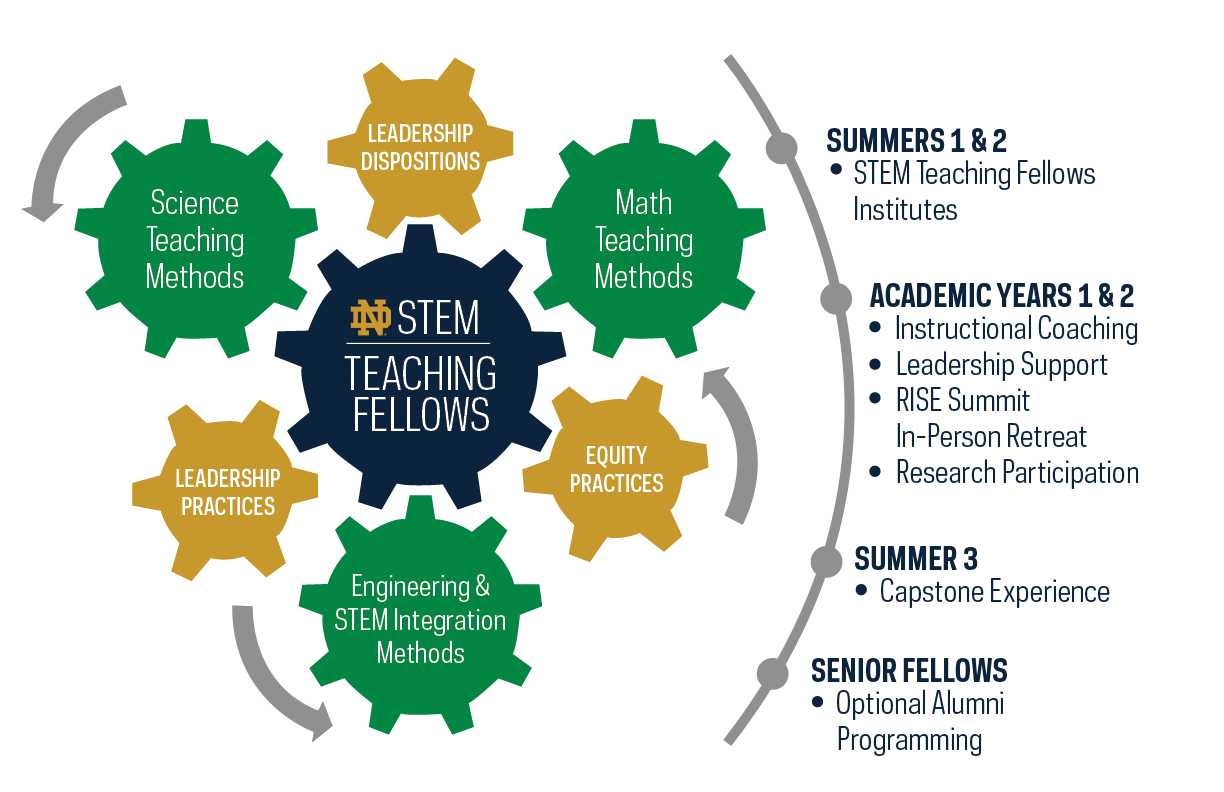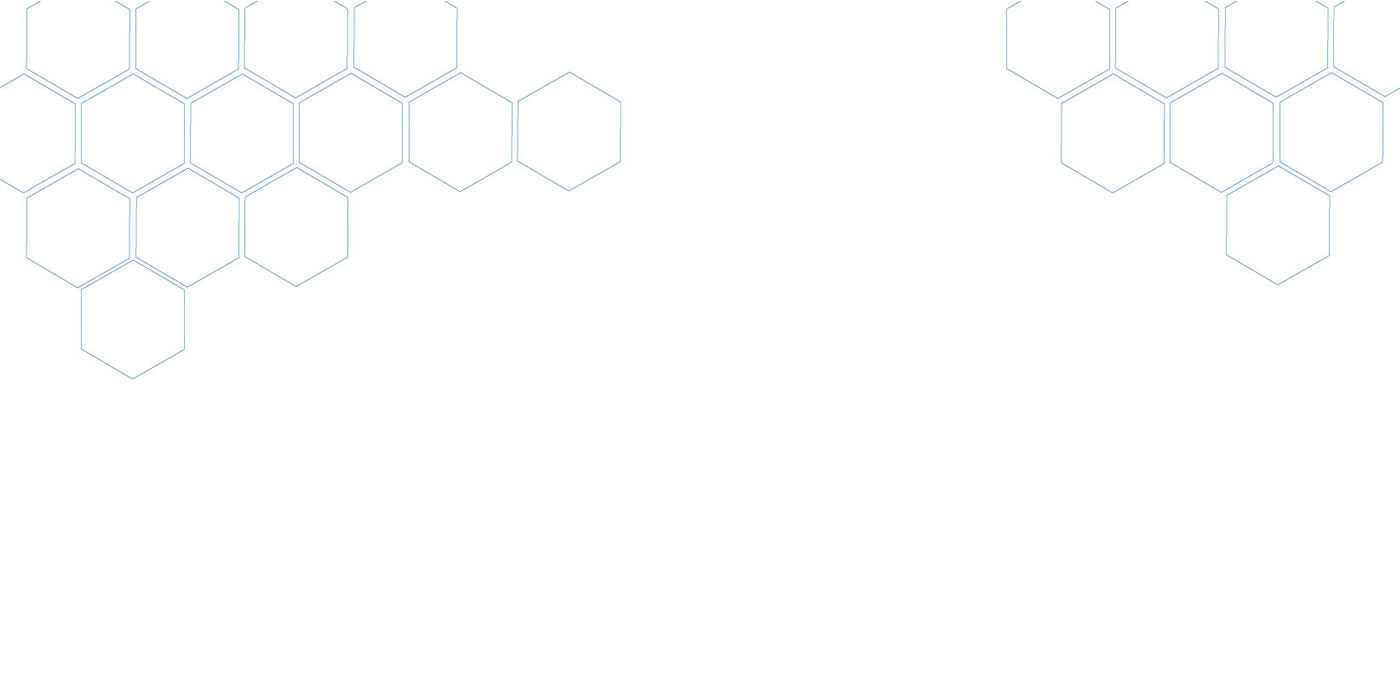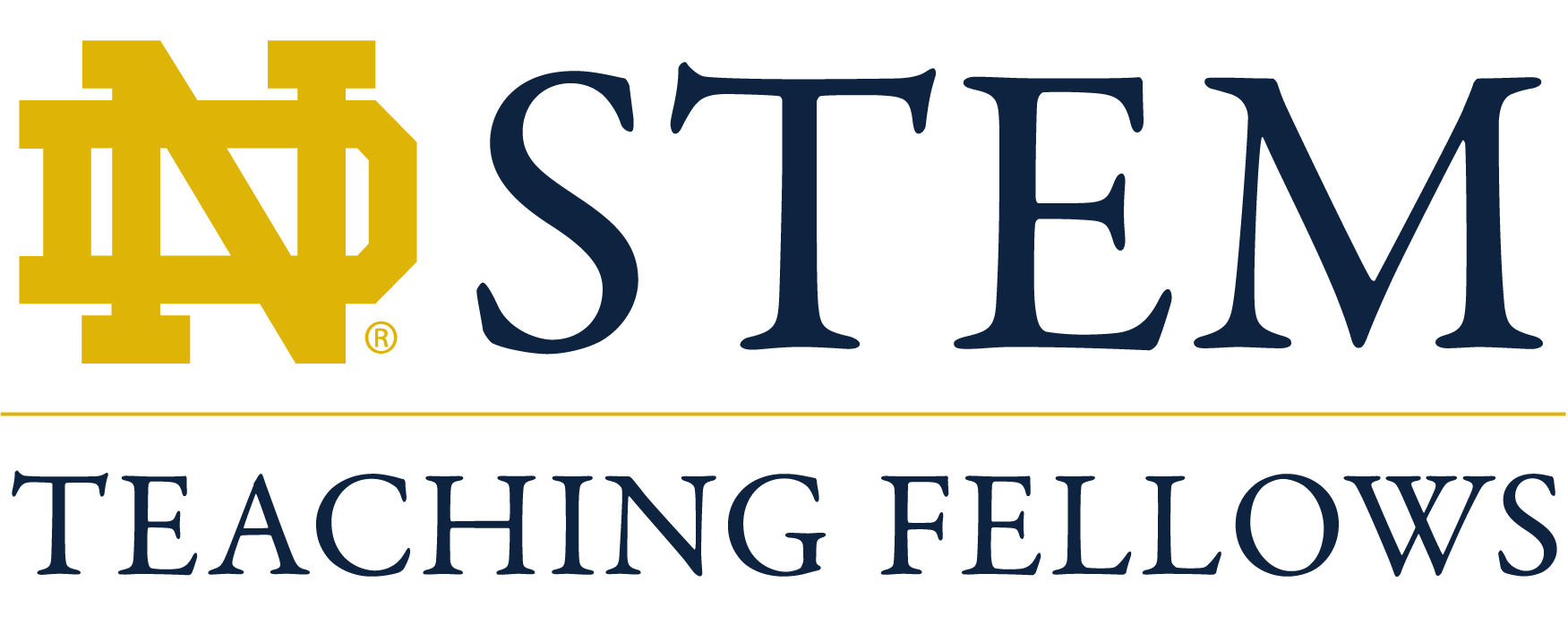Long-term Professional Development
The Notre Dame STEM Teaching Fellowship forms STEM teacher leaders who will catalyze rigorous, equity-centered, and sustainable STEM learning cultures for their students and school communities. The program spans three summers and two school years, focusing on the content and teaching of mathematics, science, and engineering in the middle grades (4th - 8th grade).
The Fellowship is driven by three Summer Institutes in which Fellows participate in a series of courses on instructional practices for cultivating a strong STEM learning culture, particularly within science, mathematics, and engineering/STEM integration content areas. The ongoing STEM Leadership Seminar weaves together themes of leadership dispositions, leadership practices, and equity practices in order to advance high-quality STEM education at broader levels of impact.
During the school year, Fellows refine their own instructional practice with their content coach, work together as a School Team to improve STEM education school-wide , and gather annually for the RISE Summit in January.

School Teams
Fellows apply as school-based teams ranging from 3-5 members. School teams create a critical mass within their schools to create effective STEM learning opportunities for all students. School teams imagine, plan, execute, and measure a school-specific STEM Blueprint Plan across the two and a half years of the fellowship. We focus on the middle grades because this developmental level is key to fostering interest and engagement in STEM, especially for under-represented populations.
Fellows and their students will participate in research throughout the fellowship. Research questions focus on teacher leadership, core instructional practices, and the relationship among STEM learning environments and student interest, learning, and identity.

Our Core Beliefs
WE BELIEVE THAT:
STEM education is centered on students’ thinking about and engagement with the natural, material, and built world.
STEM education should provide all students with rigorous and meaningful learning opportunities that are attentive to their existing and developing identities.
STEM education can be a pathway to educational equity and a means for young people to define their own futures and be a force for good.
High quality integration of the STEM disciplines provides students rich learning opportunities that reflect current theories of problem-based learning situated in relevant contexts.
Teaching has the most powerful impact on student learning, and effective teaching practice can push all students toward continual growth in the STEM disciplines.
High quality teachers understand their context deeply, pursue continuous professional growth, and exercise leadership outside of the classroom in order to catalyze systemic impacts for students.
The application of research evidence and the wisdom of practice are both central to improving the field of education for all students.



